MY JOURNEY
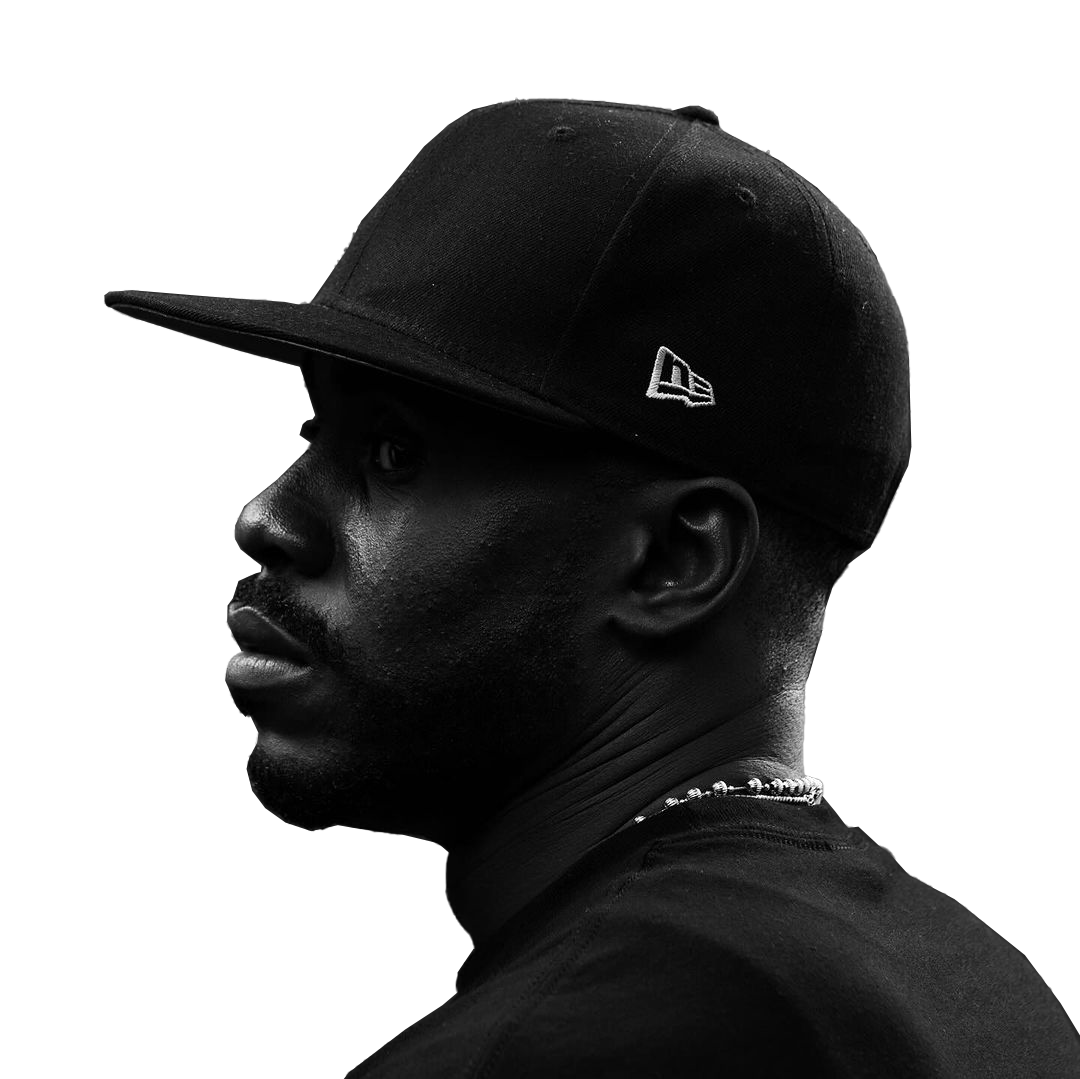
SOCCER CAREER HIGHLIGHTS
SOCCER CAREER HIGHLIGHTS
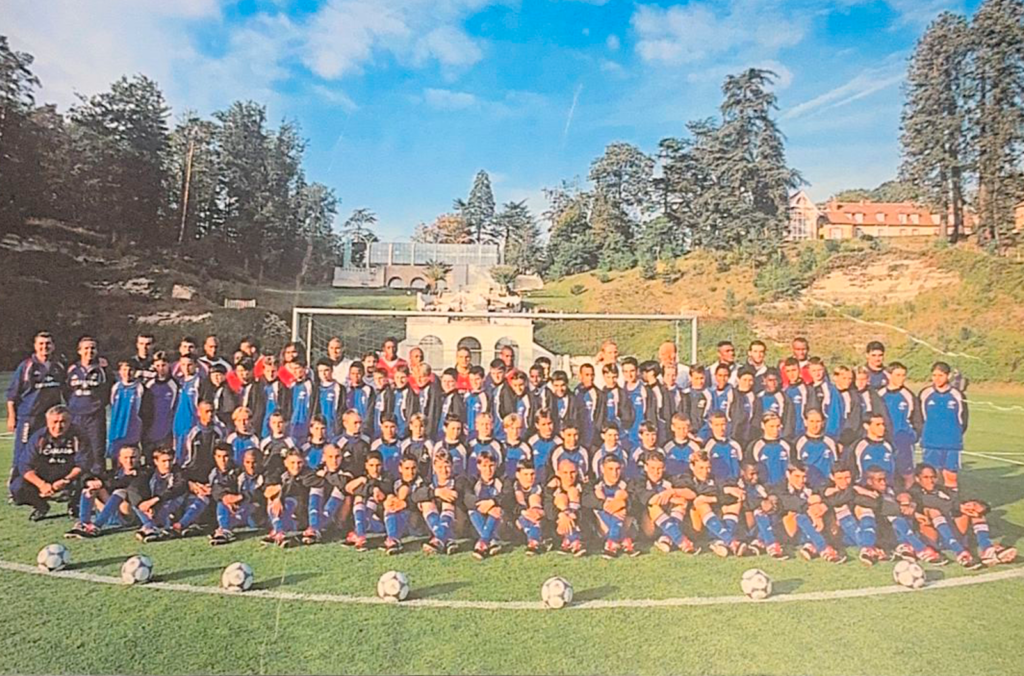
01. Early Beginnings
From the moment I kicked my first soccer ball, something sparked within me—a love for the game that I couldn’t ignore, even with the innocence I had at such a young age. Growing up, every free moment was spent with a ball at my feet or in my hands; in our tiny apartment, outside in the project buildings I grew up in, on the field, or even during recess at school. I was driven by a dream that felt bigger than anything else. My family saw my passion and supported it in every way they could, knowing how much it meant to me.
As I honed my skills and dedicated countless hours to practice, I began to realize that soccer was more than just a sport. It was a way to prove myself, to set goals, and to push beyond limits I once thought impossible. I went from struggling to juggle the ball to being able to comfortably go from point A to point B while juggling with ease. My early days were filled with neighborhood games, local matches, and watching professional games on TV, all with the single goal of improving my abilities. Each goal, each play, each moment brought me closer to my dream.
Those years laid the foundation for everything that followed, in my soccer journey and beyond. The path wasn’t always easy, but each challenge made me stronger and more focused; they were like training for what was coming next. Little did I know that soon, an incredible opportunity would come—a chance to join the PSG academy and step onto a path I had always envisioned.
SOCCER CAREER HIGHLIGHTS
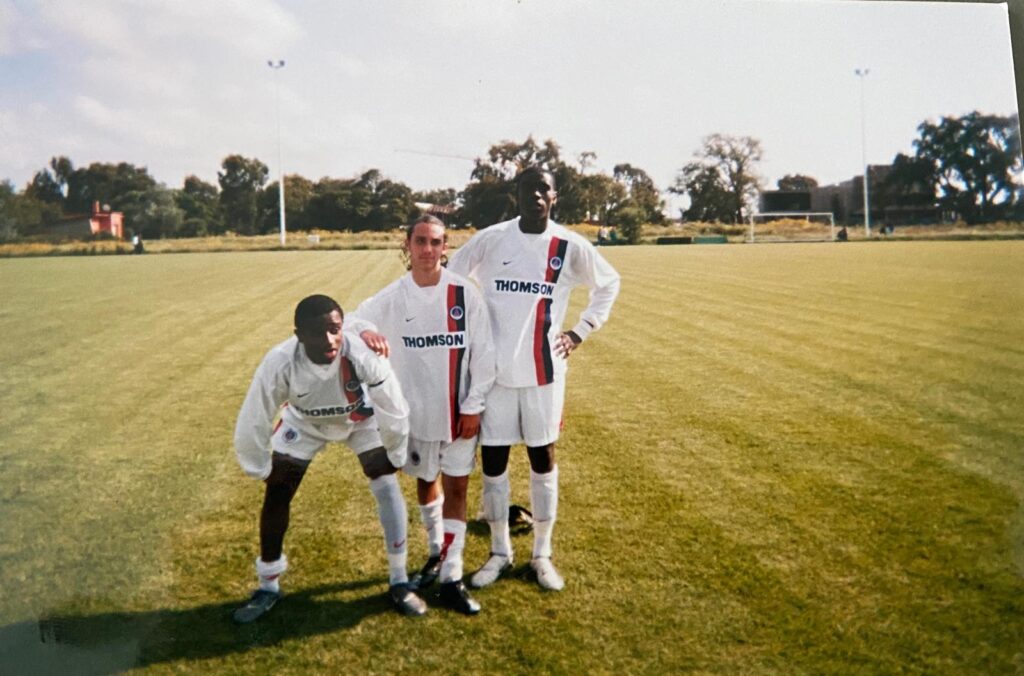
02. Joining PSG Academy: A New Chapter Begins
Joining the PSG Academy marked the beginning of my journey into the world of professional soccer. It was a dream come true—a leap forward that allowed me to develop my skills among some of the best young talents in the game. The academy wasn’t just a place to play soccer; it was a place that demanded excellence, discipline, and an unwavering commitment to improvement. Every training session, every drill, and every moment spent on the field pushed me beyond what I thought I was capable of, revealing the kind of dedication required to make it in professional soccer.
This experience was transformative. I quickly learned that talent alone was not enough; what set players apart was their work ethic, focus, and willingness to persevere through challenges. Surrounded by others who shared the same dream, I was constantly motivated to push harder, to sharpen my technique, and to deepen my understanding of the game. The standards were high, and I knew that each day was an opportunity to prove myself, not only to the coaches and teammates but to myself as well.
Those early years at the academy weren’t without their challenges. I faced setbacks and moments of doubt, yet each obstacle strengthened my resolve. I realized that becoming a professional wasn’t just about reaching a destination—it was about the journey of self-discovery, resilience, and growth. Little by little, I was building the foundation of who I would become, both on and off the field. PSG Academy didn’t just shape me as a player; it shaped me as a person, instilling values that would guide me through the rest of my career and life. Any time I strayed from these values, I found myself facing challenges that were even more difficult to overcome.
SOCCER CAREER HIGHLIGHTS
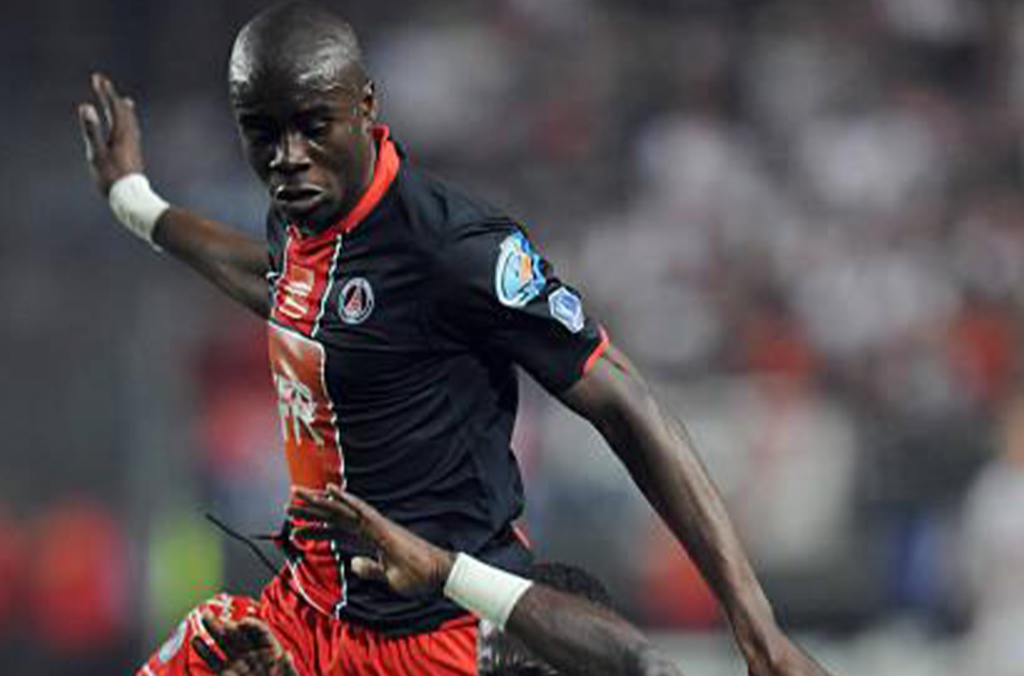
03. Playing My First Professional Game: A Moment of Realization
Stepping onto the field for my first professional game was a surreal experience—one that I had dreamed about countless times. The buildup to that day was filled with a mixture of confidence, excitement, and nervous energy that only grew stronger as I prepared to take the field. This was no longer just a dream; it was my reality. Everything I had worked for, from endless hours of training to every challenge I had faced, had led to this point. I remember, like it was yesterday, what my coach told me the day before that game when he informed me I was about to start: “If I make you start that game tomorrow, it’s because you’ve shown me that you’re ready and you deserve it… but remember, sometimes the train only stops once.” Those words resonated deeply, and I focused on the part where he said I was ready.
The atmosphere in the stadium was electric. This was the stadium my father had taken me to countless times as a kid, the home of the only Parisian team playing at the highest level. I remember the crowd, the sound of the whistle, and the energy radiating from my teammates. Being out there, playing alongside seasoned professionals, was both humbling and exhilarating. Every pass, every sprint, every decision felt more intense, more important than anything I had experienced before. I quickly learned that the professional level demanded more than just skill; it required mental focus, quick adaptation, and the ability to handle pressure in ways I hadn’t fully understood.
In that game, I played in a different position than I had throughout my youth and academy years. Yet, I was so focused and in my zone that I ended up playing an amazing game, even delivering an assist in a match that we ultimately won. It was a moment that affirmed my readiness and made me grateful for the coach’s belief in me.
That first game wasn’t just an introduction to professional soccer; it was a test of everything I had learned and everything I still had to prove. The experience left a mark on me, igniting a fire to keep pushing forward, to keep improving, and to embrace the journey ahead. Playing my first game was a milestone that made me realize I was just at the beginning of an even greater challenge—earning my place and building my career at the highest level.
SOCCER CAREER HIGHLIGHTS
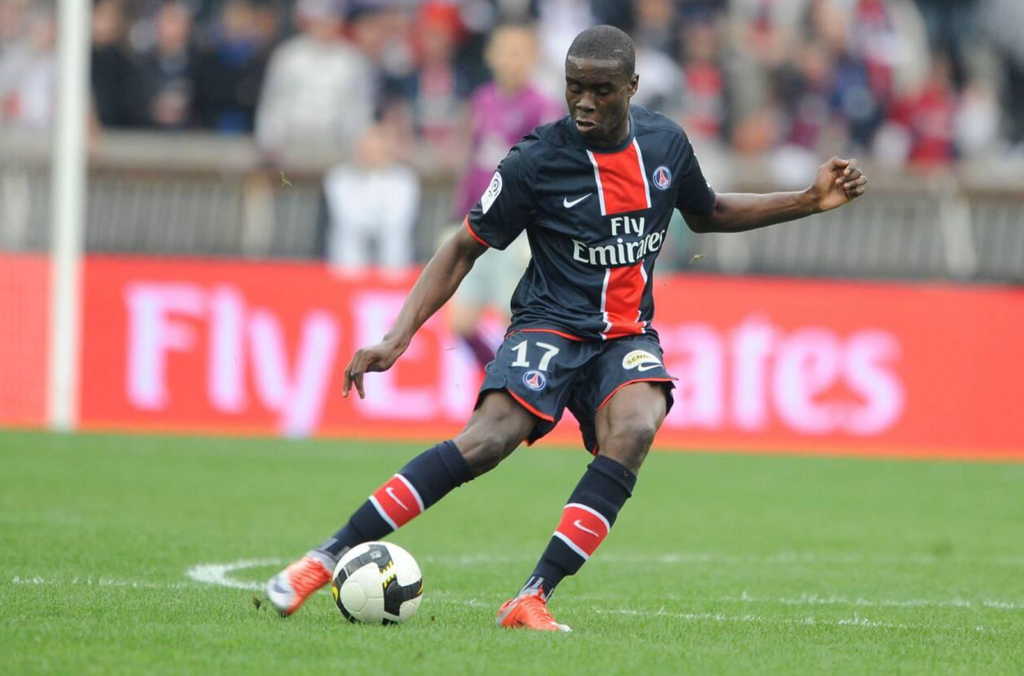
04. Signing My First Professional Contract: A Dream Sealed in Ink
Not long after my debut, signing my first professional contract marked another defining moment in my journey. This was the point where my childhood dream became a tangible reality, one I could hold in my hands. As I sat down to sign, I felt a mixture of pride, excitement, and responsibility. This contract wasn’t just a piece of paper; it was a commitment to the career I had worked tirelessly for, a promise to give my all every time I stepped onto the field. Out of the 30+ players who had joined the academy with me, I was one of only three from my generation to sign a professional contract—a testament to the hard work and dedication that had brought me here.
The moment was surreal, and it came at an unexpected time. Just three days after my first game, I had suffered my first injury—a setback that left me facing the fear of whether I could even walk again. I was at my lowest low, feeling vulnerable and uncertain, when the call came with the offer. The day after I left the hospital, I received the news that brought tears to my eyes. In that instant, I thought back to the countless hours of practice, the sacrifices my family had made, and the challenges I’d faced to reach this point. Signing that contract was validation that my efforts had paid off despite the circumstances. It symbolized not only talent but also the resilience, work ethic, and dedication that would carry me forward for the next 13 years of my life.
With pen in hand, I realized that this was just the beginning of a new journey. I was now part of a select few, trusted to carry the club’s name and legacy. There was no turning back—only a future filled with hard work, growth, and the drive to prove myself with every game. This contract was both a reward for the past and a challenge for the future, a stepping stone to everything I still aspired to achieve.
Signing my first professional contract was a milestone that reinforced my dedication, ignited my ambition, and solidified my commitment to a life in soccer. It was the moment I truly became a professional, ready to embrace all the highs and lows that lay ahead.
SOCCER CAREER HIGHLIGHTS
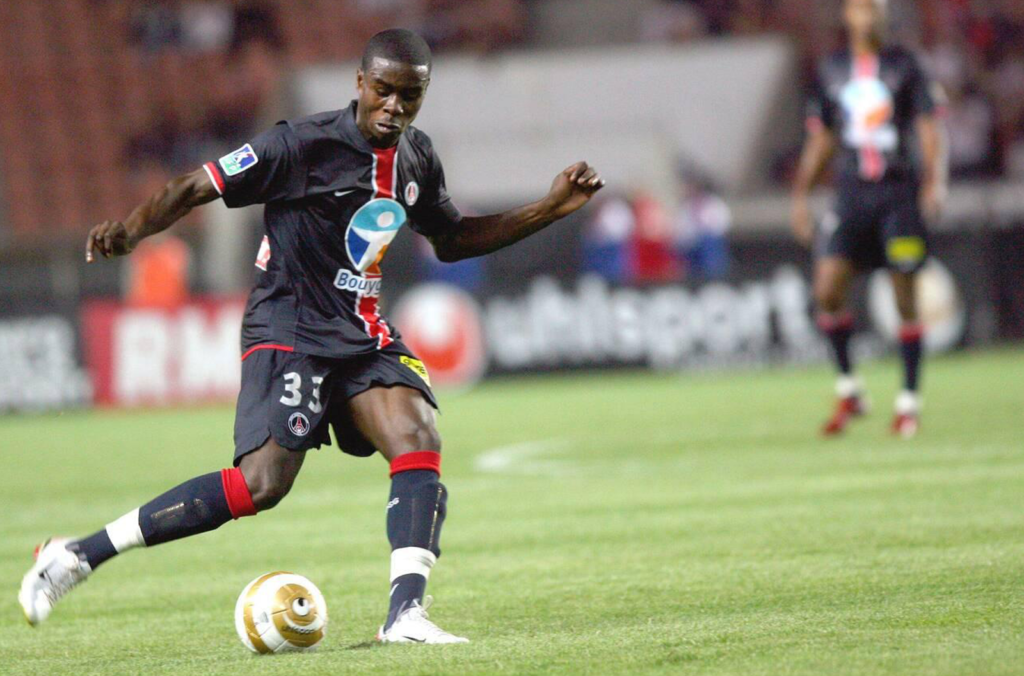
05. Significant Matches: My First Game Back from Injury
My first game back after my injury was unforgettable—a true test of resilience and a defining moment in my career. On March 15th, 2007, nearly six months after being sidelined, I returned to the field for a UEFA Cup match against Benfica. It was a round of 16 game, and the stakes were high. I was genuinely surprised to be in the starting lineup; I had only rejoined collective training three weeks before and knew I wasn’t ready to play the full 90 minutes. But there I was, back on the field, in a position I had played only once before as a professional—right back.
The game was challenging, to say the least. My direct opponent was Fabrizio Miccoli, a player whose abilities were everything a defender like me didn’t want to face: short, incredibly tonic, skillful, and constantly on the move. His quick movements and relentless runs put me to the test, pushing my fitness and concentration to their limits. Coming back after months away, facing an opponent like that in such an intense match was no small feat. The pace and physical demands of the game reminded me just how tough the professional level could be, especially after a long recovery.
By the 65th minute, I was completely gassed out. I asked to be subbed off, knowing I had given everything I could but was simply not match-fit yet. Despite the exhaustion, the experience was invaluable. It allowed me to get a taste of the elite level and learn firsthand the level of fitness, focus, and resilience needed to compete against top players.
As we flew back to Paris, I reflected on the game, replaying every moment in my mind. I told myself that this was only the beginning of my return, and I would be back stronger, ready to truly show what I was made of. This match, though difficult, was an incredible experience that renewed my hunger to grow and succeed at the highest level.
SOCCER CAREER HIGHLIGHTS

06. Significant Matches: My Debut with the French National U21 Team
During the trip to Portugal, to play against Benfica, the day before the game, I received news that would leave a lasting mark on my career. At dinner, my coaches informed me that I had been called up to join the French National U21 team. It was a moment of pride and disbelief—I had only just returned from nearly six months on the sidelines due to injury. The call-up felt surreal, especially so soon after my recovery. Yet here I was, called to join the best of the best in my age group.
After that demanding match against Benfica, I traveled to join the national team. Being there was a humbling experience. I found myself surrounded by players like Nasri, Ben Arfa, Menez, and Hugo Lloris—names already known as prodigies in French football. For me to be included among them felt almost unreal, and I was eager to prove I belonged.
In training, I felt the same spark that had carried me through my days with PSG’s senior team. My confidence was gradually coming back, and I was performing well in practice. It took until the second game of the trip for me to finally make my debut. I was placed in my preferred position as center back, but once the game began, something felt off. Despite being in a familiar role, my usual sensations weren’t there. My movements felt different, and I wasn’t playing at the level I knew I was capable of. I began questioning whether I could regain my form, though part of me knew it was likely natural after such a long absence and a quick reintroduction to high-level competition.
In the end, I wasn’t satisfied with my performance, but the experience was invaluable. While I had shown my potential in training, I knew I hadn’t displayed my best in the game. Still, the chance to stand among France’s brightest young talents reminded me of my own capabilities and fueled my desire to keep pushing forward. I left with the knowledge that I had work to do, but I also left with the determination to prove that I was worthy of being there.
SOCCER CAREER HIGHLIGHTS
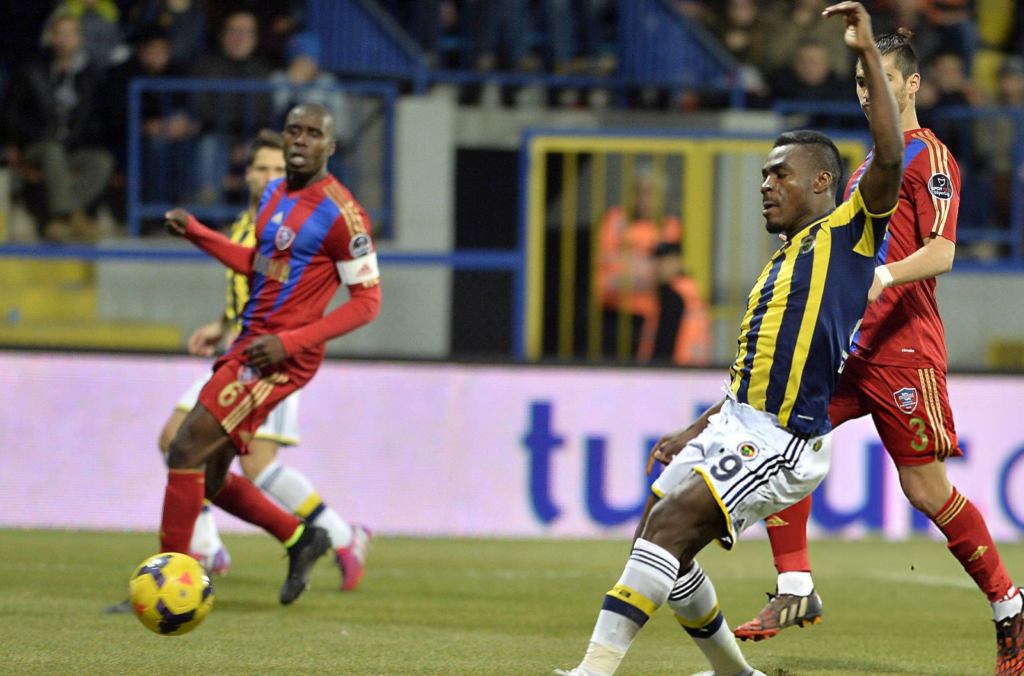
07. Significant Matches: Karabükspor vs. Fenerbahçe – A Battle for Survival
On May 18, 2014, I played one of the most crucial matches of my career—a game that would determine Karabükspor’s fate in Turkey’s top league. We were up against Fenerbahçe, one of the country’s “Big Three” clubs, a team with a massive fan base and the most league trophies at the time. They were also fighting for a win, needing it to secure a spot in the Champions League. The stakes were sky-high for both sides, and the pressure was intense.
Karabük is a small, industrial town, and many locals there are fans of the bigger clubs like Fenerbahçe, Galatasaray, or Beşiktaş. Yet, on that day, even those who usually cheered for Fenerbahçe found themselves rooting for us to save our place in the league. The atmosphere was electric, and the tension was palpable—this was more than just a game.
The match itself was a relentless battle. Fenerbahçe took the lead after just 30 minutes, and we were on the back foot, knowing that a loss would mean relegation. But we kept pushing, fighting for every ball. Our resilience paid off as we leveled the score, and soon after, we took the lead. Just as we thought we had control, Fenerbahçe struck back, tying the game once more. It was a rollercoaster of emotions, with both teams refusing to back down.
In the final moments, we managed to find the back of the net again, making it 3-2. The relief and pride that flooded over us at the final whistle were indescribable. We had done it—we had beaten one of Turkey’s biggest clubs to secure our place in the league. That game was a reminder of why this sport is so powerful; the stakes, the struggle, and the joy of victory create emotions that are multiplied tenfold. It was a moment I’ll never forget, a testament to the heart and resilience of our team.
SOCCER CAREER HIGHLIGHTS
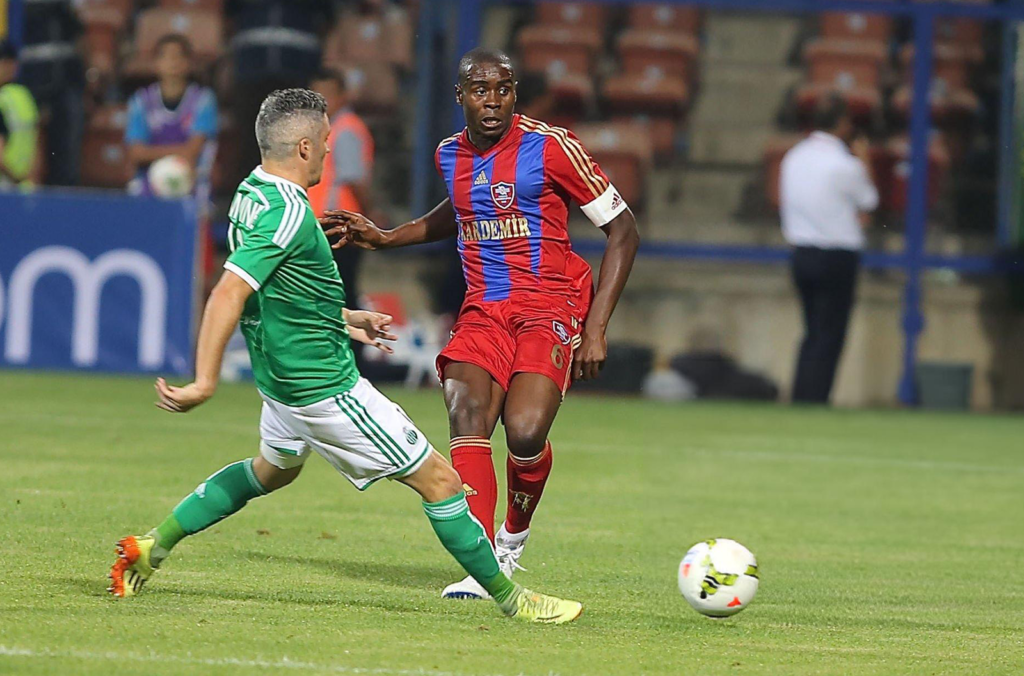
08. Significant Matches: Leading Karabükspor Against Saint-Étienne
By the 2014 season, my journey had come full circle in a way I’d never imagined. At just 25 years old, I was captaining Karabükspor—the youngest captain in the league and the only foreigner entrusted with that role. I was no longer the young player taking his first steps with PSG; I was a mature leader, responsible for guiding a team with players even older than myself. And on August 28, 2014, I faced one of the most significant games of my career—a Europa League qualifier against Saint-Étienne. It was a historic match for Karabükspor, marking the club’s first-ever appearance in a European competition.
Seven years after that memorable game against Benfica, I returned to France, this time as a captain. We had already overcome Rosenborg in the previous round, and we’d managed to secure a 1-0 win at home in the first leg. But now we were stepping into “Le Chaudron,” Saint-Étienne’s infamous stadium, known for its intense atmosphere and tough conditions for visiting teams.
The game began with an intensity I had rarely experienced in my career. The first 20 minutes were relentless, with Saint-Étienne pressing us high and denying us any meaningful possession. At the 23rd minute, they broke through and scored, leveling the tie at 1-1 on aggregate. We knew that conceding another goal would mean elimination, so we dug in, fighting to hold our ground. We even managed to create a few chances of our own, but nothing would find the back of the net.
After 90 minutes and then extra time, the score remained 1-0. It all came down to a penalty shootout. As captain, I stepped up to take one of the penalties, and I converted it, feeling the weight of responsibility and pride for my team. But despite our efforts, we ultimately fell short and were eliminated in the shootout.
Walking off the field, it was a hard loss to swallow, but the experience was invaluable. Returning to France, leading a team from another country, and competing in Europe as captain was an honor that meant everything to me. Though we didn’t advance, that night reinforced my growth as a player and as a leader—a night that will always hold a special place in my journey.
SOCCER CAREER HIGHLIGHTS
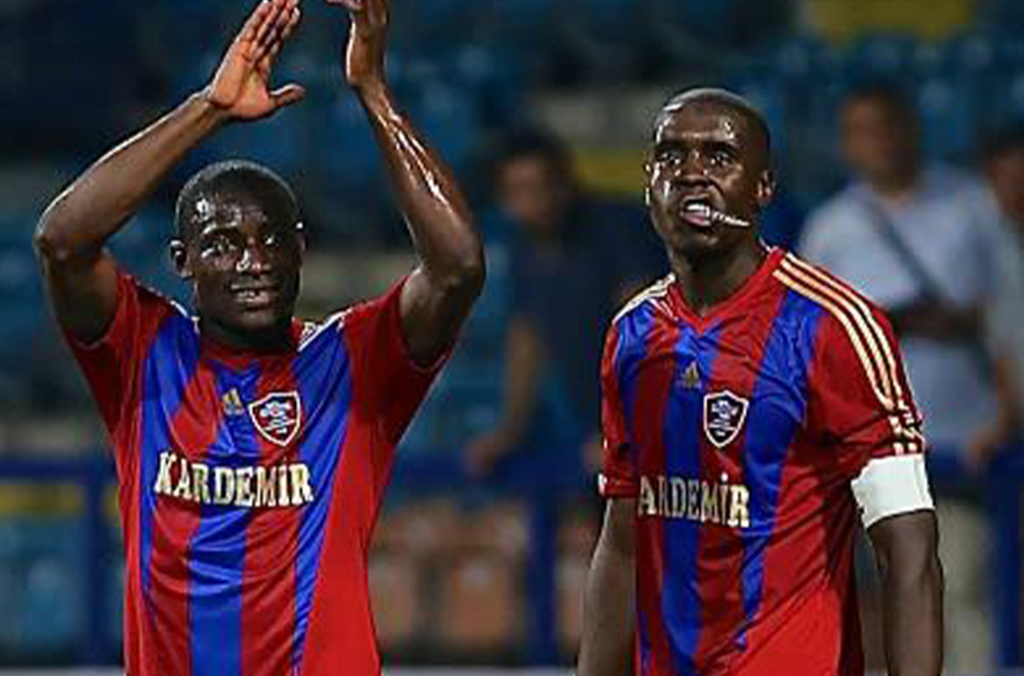
09. Significant Matches: A Survival Derby with Kayserispor Against Sivasspor
The final game of the 2016-2017 season was a déjà vu moment for me. Three years after my survival match with Karabükspor against Fenerbahçe, I found myself in a similar situation—this time with Kayserispor, facing off against Sivasspor in a derby with everything on the line. Both teams needed a win to secure their place in the league, and a loss meant relegation. A tie offered a slim chance of survival, but nothing was certain. This time, though, I felt more prepared and calm, drawing on my past experience to help my team approach the game with confidence.
The rivalry between Kayseri and Sivas runs deep; the two cities are only 120 miles apart, and there’s a real sense of animosity between them. Kayseri, a bustling and influential city known for its business-minded culture, had the advantage of hosting the game, and our fans came out in full force, filling the stadium with an electric atmosphere. Each fanbase was desperate to see their rivals relegated, adding even more pressure to an already intense showdown.
We struck first, scoring in the 7th minute, igniting the crowd and giving us an early advantage. From that moment on, every play, every ball, and every duel became a battle, with both teams fighting tooth and nail to secure their survival. Sivasspor equalized in the second half, around the 80th minute, and the pressure mounted as they pushed hard for a winning goal. But we held firm, determined not to let our early advantage slip away.
When the final whistle blew, the score remained tied, and the result was enough to keep us in the league. Our fans erupted with joy, staying in the stadium long after the game to celebrate, savoring the moment of victory over our rivals. For us, it was more than just a game—it was a testament to resilience and teamwork, and a reminder of how soccer can bring people together in unforgettable ways.
Once again, this game reinforced a powerful lesson: the harder the battle, the sweeter the victory.
SOCCER CAREER HIGHLIGHTS
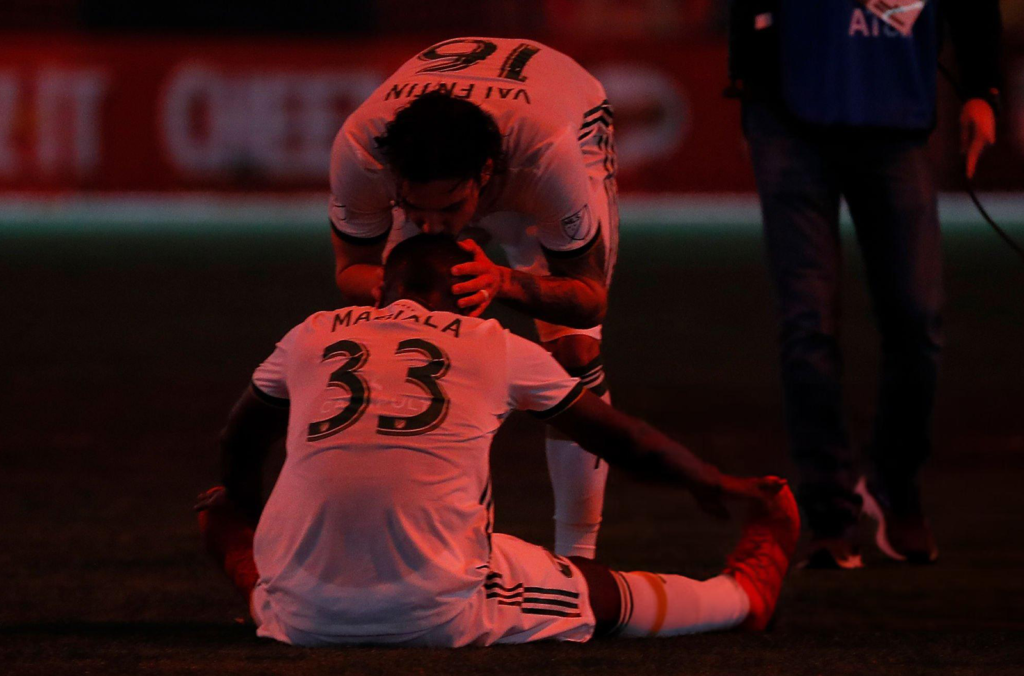
10. Significant Matches: My First MLS Cup Final with the Portland Timbers
The 2018 MLS Cup Final was a pinnacle moment in my career. Playing for the Portland Timbers, we reached the highest level of Major League Soccer—a feat that’s incredibly hard to achieve given the season’s demands. After 34 regular-season games and 4 to 6 intense playoff matches, even teams finishing 5th or 6th in the standings have a shot at the final. For us, the journey was challenging from the start. We played our first five games on the road without earning a single point, but we persevered, ultimately finishing the season in 6th place and securing a playoff spot.
Our playoff run was anything but smooth. In a knockout round on the road in Dallas, I received a red card, forcing us to play with ten men. But we pushed through every obstacle, advancing round by round until we reached the final in Atlanta to face the league’s best team. Mercedes-Benz Stadium was packed with 80,000 fans, creating a sea of sound and energy. The closed roof amplified every cheer, every chant, making the atmosphere nearly overwhelming. It felt as if each sound echoed tenfold, adding to the high-pressure environment.
Unfortunately, we struggled to find our rhythm that day. Right from the start, we were on the back foot and couldn’t get into the flow of the game. Atlanta’s intensity, combined with the charged atmosphere, made it tough to execute our game plan. I had hoped that the resilience we’d shown during the regular season would be a difference maker, helping us to overcome the challenges of playing in such a daunting environment, but we fell short. We weren’t able to showcase the quality and resilience that had defined our season.
Despite the disappointment, the experience of playing in an MLS Cup Final was unforgettable. The atmosphere, the energy, and the gravity of the event made it a career-defining moment. Walking off the field, I was left with a deep sense of unfinished business. At 31, I knew my time was limited, and I promised myself I’d be back—determined to show what we were truly capable of on that stage. As they say, what doesn’t kill you makes you stronger.
SOCCER CAREER HIGHLIGHTS
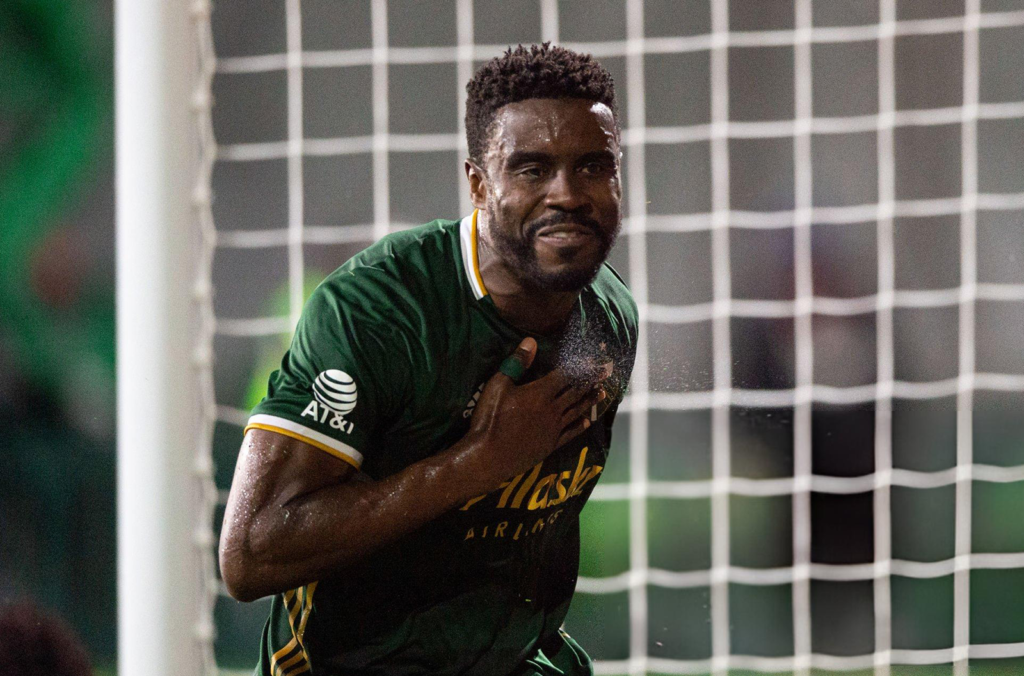
11. Significant Matches: The MLS is Back Final
The MLS is Back tournament in 2020 was one of the most unique and challenging experiences of my career. Held during the height of the COVID-19 pandemic, the entire event took place in a “bubble,” isolating us from the outside world. Prior to this, we had been in lockdown at home for two months. When the tournament was announced, the conditions seemed extreme: we would be confined to a hotel for 45 days if we made it to the final, cut off from our families, with no visits allowed from the outside. The thought of being away from my wife and kids for such an extended period, all while living under strict restrictions, made me hesitant. I even told my coach and teammates that I wouldn’t go.
On the first day, we had to remain in our rooms for 14 hours, awaiting COVID-19 test results before we could even step into the lobby. Everything about the tournament environment was difficult, and the idea of isolation weighed heavily. But after long discussions with my wife and kids, I ultimately changed my mind. Once I decided to go, I was resolute: if I was leaving my family behind, I would make it worth the sacrifice. In my mind, there was only one acceptable outcome—I would leave that bubble with the trophy.
The tournament was grueling, both mentally and physically. Every team faced the same conditions, and with all professional sports paused worldwide, we had an audience like never before. In the final match, we faced a tough opponent, and the stakes felt as high as any other championship. I scored the first goal, putting us in the lead and fueling my determination even further. But the game tightened when our opponents equalized, making every play critical. In the end, we prevailed with a 2-1 victory, winning the MLS is Back tournament.
Though this title may not hold the same weight as an MLS Cup, it’s one that I’m incredibly proud of. We won under difficult, uncertain circumstances, during a time when everything felt upended. For me, this victory symbolized resilience and dedication, not just to the game but to the commitment I made to myself and my family. It was a testament to the strength we found in each other, even when separated.
SOCCER CAREER HIGHLIGHTS
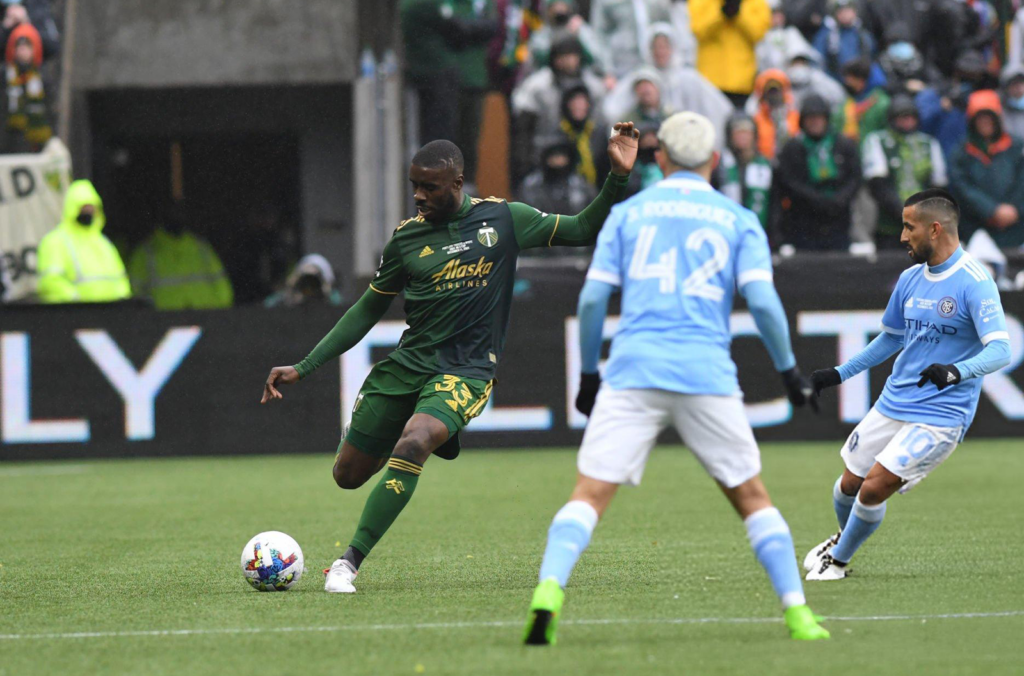
12. Significant Matches: The 2021 MLS Cup Final
Three years after reaching the MLS Cup Final in 2018 and two years after winning the MLS is Back tournament, I fulfilled the promise I made to myself to come back to the biggest stage in American soccer. Reaching three finals in four years was no small feat, a testament to the strength and consistency of our team. The season itself had been grueling; with just twelve games left in the regular season, we were far from a playoff spot, sitting around nine points behind the final position. Personally, I was also facing challenges, finding myself in and out of the starting eleven—a situation that weighed heavily on me.
Everything changed with a crucial victory in a derby match against Seattle. We won 2-0 on the road, sparking an eight-game run where we won seven of eight consecutive games and then finished by winning ten out of fourteen to secure a higher-than-expected playoff spot. By some twist of fortune, we even ended up hosting the MLS Cup Final. The excitement from our fanbase was off the charts; I genuinely thought the stadium might collapse from the energy. Normally, when we arrive at the stadium two hours before kickoff, the stands are mostly empty. But that day, not only was the famous Timbers Army section packed, but many other sections in the stadium were already filled with fans who arrived even before we did. It was clear just how much this game meant to everyone. The pre-game atmosphere was electrifying, setting the tone for what was to come.
We conceded an early goal, but our fans never wavered—they kept chanting and cheering, driving us forward. Our first half, however, was rough, and I felt the frustration boil over as I yelled in the locker room at halftime. I didn’t want to let another chance slip away. When we returned for the second half, we played with renewed intensity. Then, in the 92nd minute, we scored the equalizer—easily one of the pinnacles moment of my soccer career. With just one minute left on the clock, the stadium erupted, fans jumping so hard it felt like the ground might give way. The roar was deafening, the energy indescribable. It was a moment that captured everything beautiful about the game.
Despite our efforts, we ultimately lost the match in the most brutal way possible: a penalty shootout. Right in front of our home fans, it was a heartbreaking end, one of the hardest losses I’ve ever had to face. Yet, the fight we showed until the very end left me with a lasting lesson. As long as you keep pushing, keep grinding, and give everything you have, you won’t have regrets, regardless of the outcome. Sometimes, even in defeat, you gain invaluable insights about yourself and the journey you’re on. That resilience, that drive—it stays with you, reminding you that every challenge can still be a stepping stone.
SOCCER CAREER HIGHLIGHTS
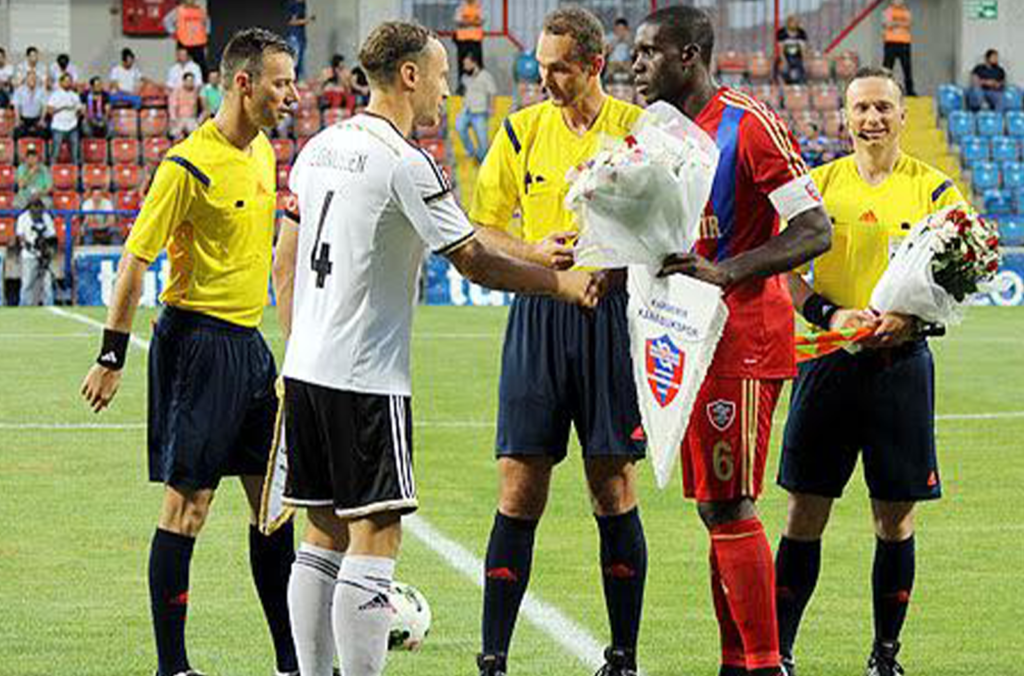
13. Becoming Team Captain of Karabükspor
Becoming the captain of Karabükspor was a defining moment in my career, one that reflected the hard work and resilience it took to get there. I won’t go into the details of what initially led me to Karabükspor, but for those interested, I wrote about that journey elsewhere. In short, after facing challenges and setbacks during my time in Nice, I found myself struggling with confidence. Injuries, being shifted to unfamiliar positions, and inconsistent playing time took a toll on me, and I knew I needed a fresh start to reignite my career. Determined to take control of my path, I went to my president and requested to leave—a bold step that showed just how committed I was to finding my way forward.
That decision led me to Karabükspor, a club I’d never heard of, in a league I’d only briefly seen through highlights of Nicolas Anelka at Fenerbahçe. When I joined, the team was in a difficult position, sitting last in the table and 11 points behind the relegation zone. But I was determined to prove myself and play at the highest level. Against all odds, we finished that season in 11th place, winning 15 games in the second half of the season. It was a testament to the strength and unity we built as a team.
A year later, toward the end of the season, I was named team captain at just 25 years old—the youngest in the league and the only foreigner to hold that position. In Turkey, the captain’s armband is a deeply valued symbol of leadership, partly due to the legacy of Atatürk and the emphasis on strong leadership in Turkish culture. Being chosen as captain was an incredible honor, a recognition of my performance on the field and my ability to lead the team in critical moments. I had earned respect not only from my teammates and management but also from others around the league who knew my journey.
Reaching this point was something I took immense pride in. It taught me a valuable lesson: when you’re fully committed to becoming the best version of yourself and put in the work, rewards will come in time. Along the way, you’ll also gain unexpected but equally meaningful experiences that shape you. Earning the captaincy wasn’t just a milestone; it was a reminder that dedication and resilience lead to growth, respect, and sometimes, the kind of recognition that takes you to new heights.
SOCCER CAREER HIGHLIGHTS
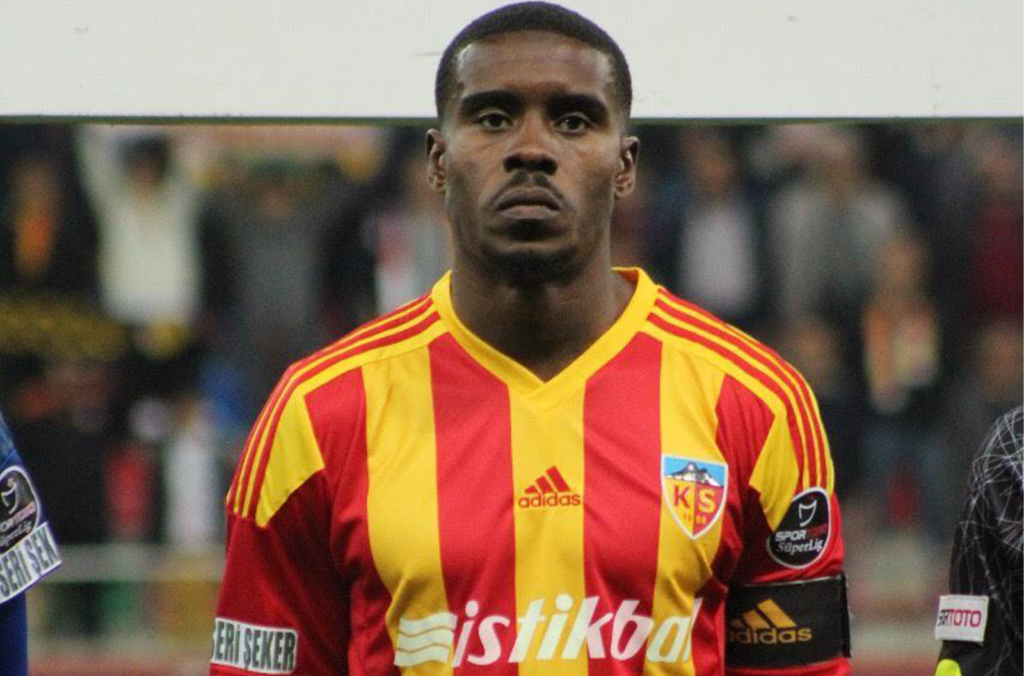
14. Becoming Team Captain of Kayserispor
Before joining Kayserispor, I found myself in a difficult situation. My journey with Karabükspor, as beautiful as it began, ended in an unexpected and challenging way. During the 2014-2015 season, when we were eliminated just before the group stages of the Europa League against Saint-Étienne, the players stopped receiving their paychecks—from October 2014 through the end of the season. But that’s a story for another time.
The following season, I signed with Kayserispor, a solid club in Turkey that had just returned from a year in the second division. The team needed rebuilding, and I was one of the players brought in to be part of that mission. Although the club kept a core group of players who had helped them return to the top division, it was clear we had a challenging road ahead. Our first season was tough, but we managed to stay in the league, securing survival with a crucial win in a derby match against Sivasspor in the final week.
However, history repeated itself when the board stopped paying us. By then, I was better prepared to face this situation, but the impact on the team was the same—players lost motivation, and many didn’t want to continue playing. With just three weeks left in the season, we still controlled our fate, needing two wins to secure our spot in the league. During a meeting with the sporting director, the captain and other players voiced their frustration and threatened not to play if we weren’t paid. The conversation grew tense, and I realized that a solution wouldn’t come through arguments alone.
I decided to step in with a different approach. I explained to both the players and the sporting director that while the club was undeniably in the wrong, our focus needed to be on winning the next two games to ensure our survival. Once we achieved that, we could apply the pressure needed to receive our unpaid salaries. “How would we get paid if the club was relegated?” I asked. My suggestion resonated with everyone, and we came together with a renewed purpose.
We played those last three games, won two of them, and successfully stayed in the league. Two weeks later, we all received our unpaid salaries. Shortly afterward, the sporting director called me into his office and told me that I had earned the right to be team captain for the following season. That summer, I officially became the leader of the team, serving as the bridge between the players and the board when issues arose.
Being named captain wasn’t something I had aimed for, but it was an honor I deeply appreciated. This experience taught me that there are different ways to approach and solve problems, and that the way we handle difficult situations can have a huge impact on our careers and lives. In my case, staying calm and focused in the face of uncertainty led to a positive outcome and strengthened my role as a leader on and off the field.
SOCCER CAREER HIGHLIGHTS
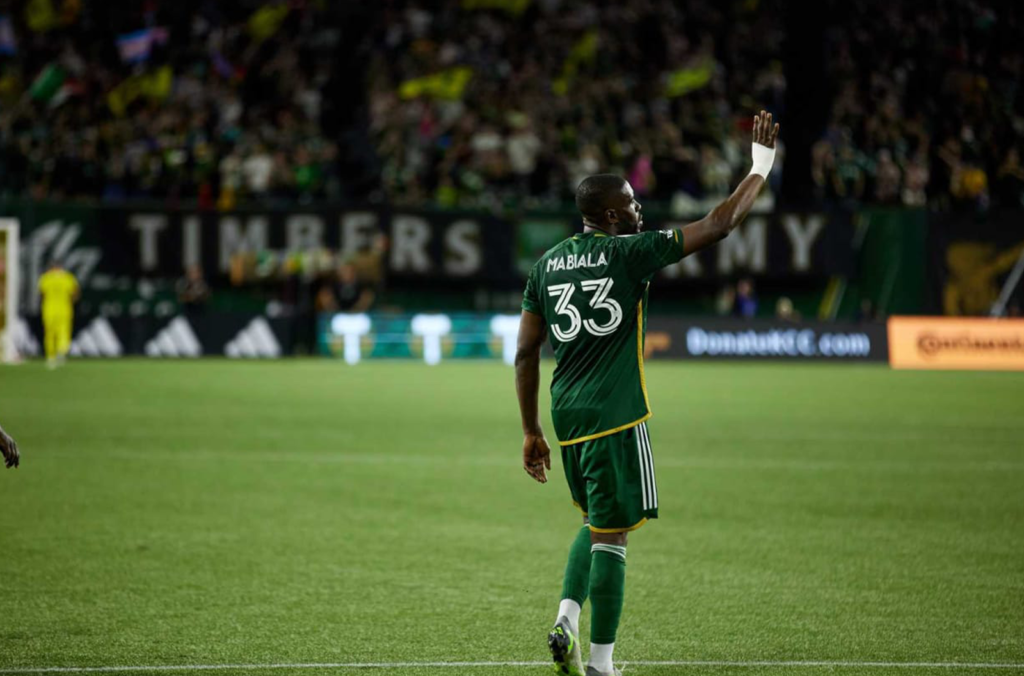
15. Becoming the Top-Scoring Defender in Portland Timbers History
As a defender, scoring goals has never been my primary focus. My priority has always been to help the team play as cohesively as possible, positioning everyone effectively to avoid conceding dangerous situations. But over time, scoring became a larger part of my game—a transformation that began during my time at Karabükspor.
In Turkey, we faced countless challenges. Between unpaid wages, teammates losing motivation, and frequent losses, simply organizing the defense and guiding players wasn’t enough. I realized that, if I wanted to lead by example and make a stronger impact, I had to go beyond my defensive duties. I began to see scoring as a way to inspire my teammates. If they saw me—a defender—pushing forward and scoring, perhaps it would reignite their drive and show them what was still possible. Although my scoring didn’t peak at Karabükspor, that shift in mindset laid the foundation for what was to come.
When I joined Kayserispor, I started finding the back of the net more consistently, especially in high-stakes games where we fought to avoid relegation. By the time I arrived in Portland, that mindset was ingrained. In my second season with the Timbers, I scored five goals in 2018. For the first time, I felt I could truly be a threat in any offensive set piece, and my confidence in these situations was high.
In 2019, I found the back of the net at 3 occasions despite missing a significant part of the season due to a knee injury, I even put my name on the box score by scoring a goal only 2 games after returning to competition in the final game on Decision Day—a game we needed to win to secure a playoff spot. Scoring in crucial moments became something I genuinely enjoyed, adding another layer of excitement to my role. By 2021, during my last season with enough playing time to build momentum, I scored in back-to-back playoff games, solidifying my record as the top-scoring defender in Portland Timbers history.
This milestone represents more than just goals; it’s a testament to versatility and a willingness to go beyond traditional expectations. It taught me that by understanding our responsibilities and taking on just a bit more than what’s required, we can make our journey even more fulfilling. When done correctly and with purpose, this kind of “functional overflow” can leave a lasting impact, showing others that dedication and adaptability can redefine our roles and amplify our contributions.
SOCCER CAREER HIGHLIGHTS
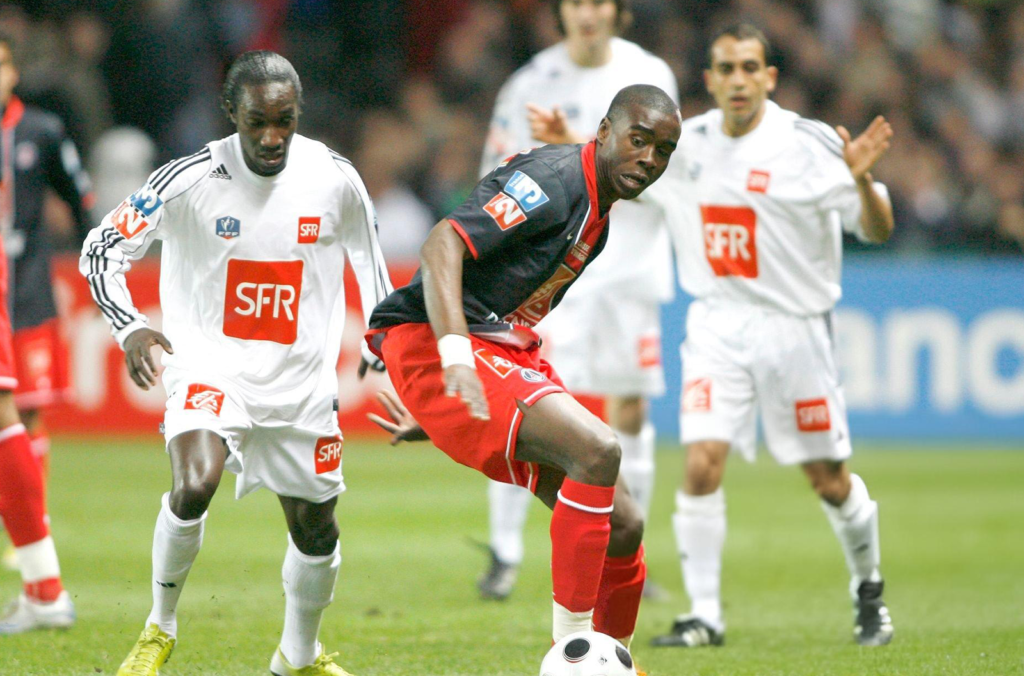
16. Overcoming Challenges: My First Major Injury
Three days after playing my first professional game in Paris—a game where I had given an assist, we had won, and I felt I had made real progress toward my goal of signing professionally—I faced a challenge I could never have anticipated. I was on cloud nine after that debut performance, excited to keep pushing forward. But instead of being included in the roster for the next league game, I found myself back with the reserve team. While it was disappointing, I knew I still had to prove myself, so I played the reserve game with everything I had.
The following day, I went to a regeneration session, feeling completely fine. It was a typical Sunday for me—I was at home, watching soccer games on TV, still riding the high of my recent performance. Suddenly, I felt a terrible pain in my pubic area as I tried to stand. I couldn’t move and had to crawl to the door to let in a friend who, thinking I was playing a prank, laughed—until he saw the seriousness on my face. The pain was unrelenting, and nothing seemed to relieve it. I went to the hospital, but despite scans, doctors couldn’t identify the issue and sent me home. Over the next few days, the pain intensified, confining me to a single position on my back. I couldn’t walk, and I soon found myself in a wheelchair, being wheeled from hospital to hospital in search of answers.
During that time, I adopted a step-by-step mindset to get through each day. My first priority was simple: I wanted to walk again. Playing soccer faded into the background, and all my energy was focused on this one goal. After two weeks of searching and losing 22 pounds, we finally got an answer—a virus was attacking my pubic bone. My recovery would be long, but I had my first step in mind.
Once I regained my ability to walk, I set a new focus: rediscovering my sensations with the ball. I took it slow, relearning my touch, movement, and rhythm on the field. Only when I felt comfortable with the ball again did I turn my attention to my physical conditioning. I knew I wouldn’t be the same player as before, having lost some explosiveness and speed. But I dedicated myself to rebuilding my strength and adapting my style of play, determined to overcome the limitations I faced.
Five and a half months later, after what felt like a lifetime of pain and immobility, I finally made it back onto the field. This experience taught me patience, belief, and faith. It was one of the top two challenges I’d face in my career, yet it made me stronger.
This injury showed me that no matter how well things are going, everything can change in an instant. But if you believe in your ability to overcome, stay resilient, remain patient, and have faith, new paths will reveal themselves. It’s a lesson that has stayed with me ever since.
SOCCER CAREER HIGHLIGHTS
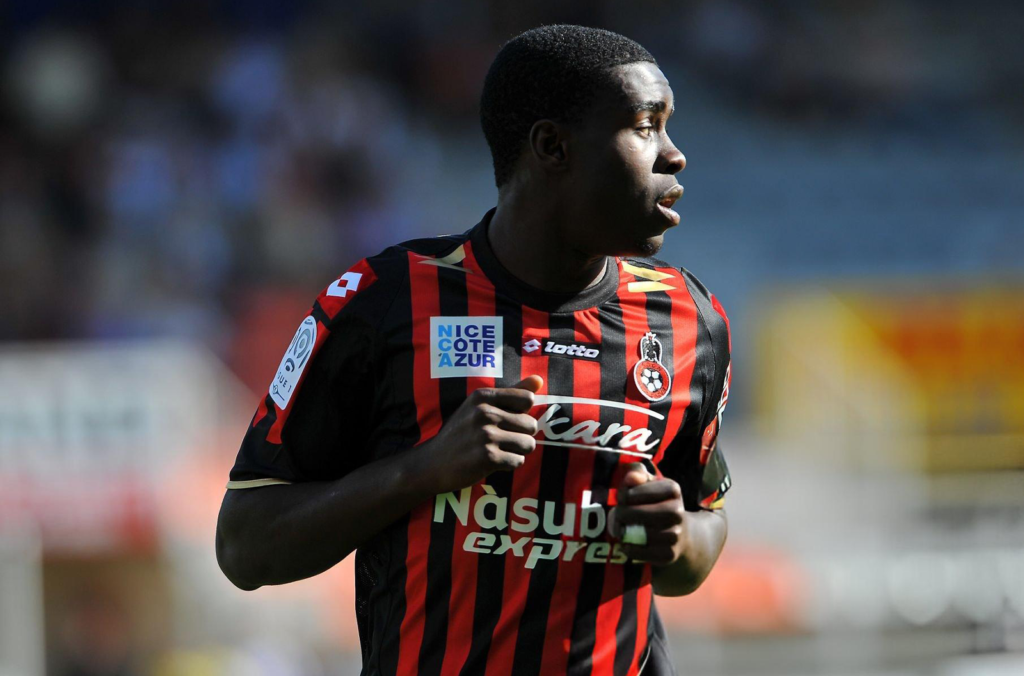
17. Overcoming Challenges: Limited Playing Time in Nice
In June 2009, I arrived in Nice with a clear goal: to finally secure consistent playing time that had eluded me at Paris Saint-Germain. Paris was my club of heart and my favorite city, filled with family, friends, and familiar places that I loved. Yet, all those things that made me feel connected to the city were also distractions that kept me from fully focusing on my career. When my contract at PSG expired, I declined the renewal, choosing instead to move as far away as possible to concentrate on my game and prove myself on the field.
My start in Nice was promising. I excelled during preseason, quickly proving myself worthy of a starting spot in my preferred position, center back. But just as things were going well, challenges began to emerge. In the third game of the season, the regular center back returned from injury, and the coach moved me to left back. Mentally, I wasn’t prepared to play in that position, and it showed. Within the first 15 minutes, I made a crucial error, misjudging a back pass to our goalkeeper that the opposing striker intercepted, scoring against us. My confidence was shaken, and my struggles were visible—I missed easy challenges, lost control, and was eventually subbed off at halftime.
It was a difficult moment, but I kept pushing. Two games later, I was back in the starting lineup, this time as a right back, and I performed better. Over time, I found myself rotated between right back and center back. Just when I felt I was making progress, a knee injury sidelined me for three months, and during my recovery, the club signed a more experienced center back. When I returned, it was clear that my opportunities to play in my preferred position had diminished. Though I trained hard and asked coaches for feedback on how I could improve, I struggled to break back into the starting eleven as consistently as I wanted.
The following seasons followed a similar pattern. Despite my efforts and commitment to improving, I was often told that it wasn’t a reflection of my ability but rather that the club preferred the established center-back pairing in my absence. This was a difficult realization, but it prompted me to shift my mindset. I focused on training more efficiently, targeting the specific areas coaches had highlighted while refining my natural strengths. My aim was to stay prepared, believing these improvements would serve me in the future, even if I didn’t get the chance to showcase them consistently in Nice.
As time passed, I recognized that what I needed to progress was an environment where I’d be empowered to play with confidence. When I realized that no matter my efforts, my opportunities at Nice would remain limited, I requested a transfer. A coach in Turkey at Karabükspor had reached out, saying exactly what I needed to hear—that he valued my strengths and saw how I could make an impact. It was a chance to move into an environment that appreciated my qualities and allowed me to contribute fully. This is how I decided to sign in Karabukspor despite their position in the fixtures. Using the challenges I had faced in Nice definitely helped me succeeding during my time in Karabükspor.
This experience taught me that sometimes, challenges shape you in unexpected ways. The limited playtime pushed me to work more strategically, improving specific weaknesses and honing my abilities. Though it wasn’t the outcome I’d hoped for in Nice, it prepared me for future opportunities and gave me a clearer understanding of the kind of environment I needed to succeed.
SOCCER CAREER HIGHLIGHTS
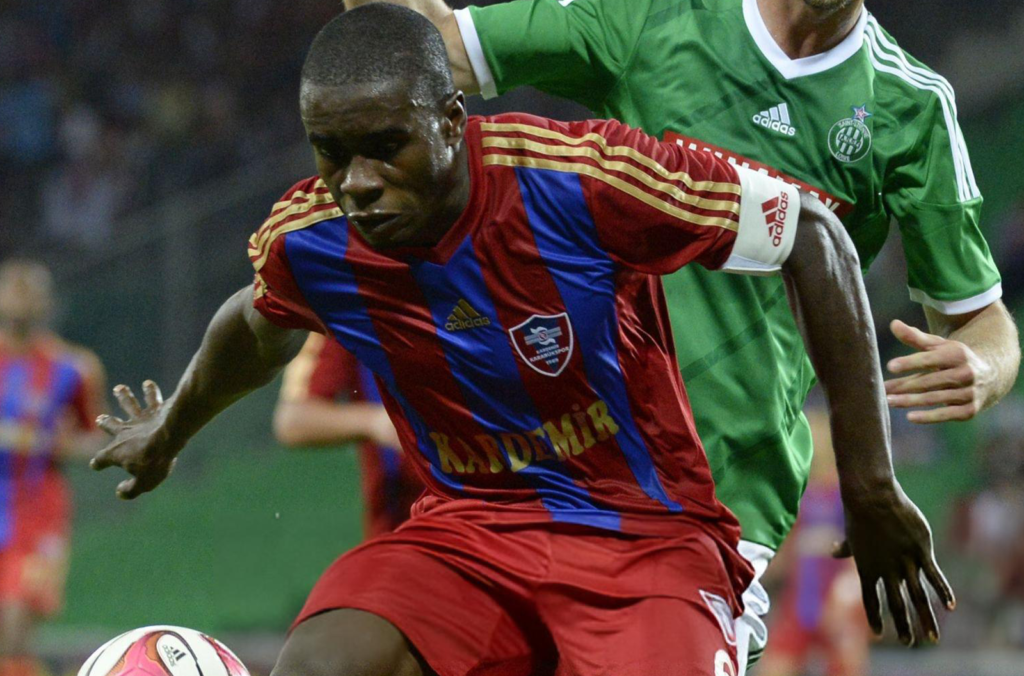
18. Overcoming Challenges: Financial Struggles at Karabükspor
After two excellent years at Karabükspor, with the pinnacle being our near qualification for the Europa League group stages and a memorable penalty shootout loss against Saint-Étienne, I faced one of the most difficult challenges of my career. Although we had come close to reaching Europe, we had to quickly refocus on the league, playing the first game of the season just three days later against Fenerbahçe in Istanbul. Despite losing 3-2, we showed quality and resilience, even after such a grueling European encounter.
The 2015-2016 season, however, turned out to be one of the toughest I’ve ever faced. As captain, my responsibilities were greater both on and off the field. Early in the season, we built a much stronger team than in previous years, and our expectations were high. But in November 2015, everything took a sharp turn. The club stopped paying us, and we were left without wages for the rest of the season. As captain, I tried to manage the frustration of my teammates, many of whom became increasingly disinterested and unwilling to keep fighting. I did everything I could to motivate them, urging them to focus on playing well and winning matches, believing that doing so was the best chance we had to resolve our financial issues. Unfortunately, the situation didn’t improve. We continued losing matches, and morale continued to drop, ultimately leading to relegation.
Relegation meant that, according to my contract, I would be automatically released from the club. With seven months of unpaid wages already hanging over me, it was clear that my time at Karabükspor was coming to an end. But emotionally, it was incredibly difficult. The uncertainty about what would come next weighed heavily on me. I had invested all my money in buying a house, preparing for my wedding, and supporting my family, and the thought of how I would manage everything without a stable income was overwhelming.
I spent that offseason in a state of uncertainty. I got married, spent time with my family, and stayed in touch with my agent daily, patiently waiting for news. In the meantime, I found solace in practicing on my own and playing basketball, which became an outlet for the stress and pressure. Basketball had always been a way for me to clear my mind and unload, and it helped me cope during this challenging period.
For the first time in my career, I felt completely powerless. I couldn’t control my fate and had to rely on my past performances, hoping that they would be enough to convince a team to take a chance on me. After two weeks of waiting, I received a call from Karabükspor, informing me that a wire transfer had been processed, and I could come to the club to pick up checks that would be cashed monthly until the end of the season. While not the phone call I had hoped for initially, it was a huge relief to receive some payment, at least for the time being.
The phone call I had really been waiting for came three weeks later, when my agent informed me that Kayserispor wanted to sign me. I traveled to Kayseri the next day to negotiate the contract. That moment was the culmination of weeks of uncertainty and waiting—it was the breakthrough I had been hoping for, and everything finally started to fall into place.
That experience taught me a crucial lesson: in some situations, the only thing you can do is focus on what’s in your control. Every day, I had to focus on the small things that I could manage—my training, my mindset, my approach to the situation—without overthinking the bigger picture. It was about staying clear-headed and sharp in my decision-making. I learned that no matter how difficult things get, staying focused on the present and what you can control will eventually lead to the breakthrough you’re waiting for.
SOCCER CAREER HIGHLIGHTS
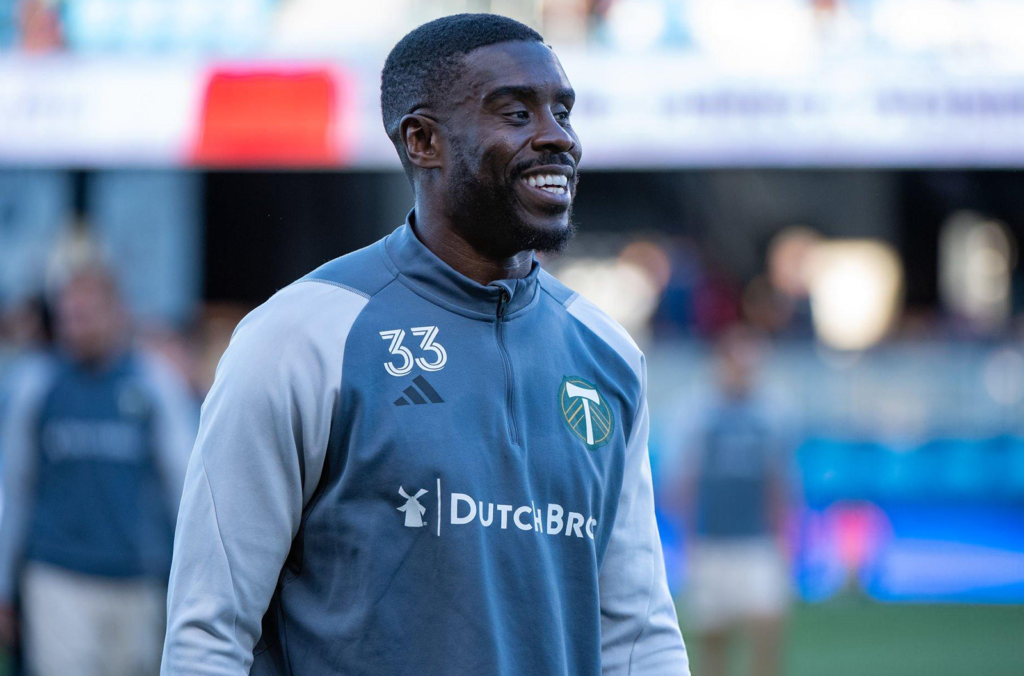
19. Overcoming Challenges: Being Benched in My Final Seasons with Portland
However, everything changed after the 2021 MLS Cup campaign, where we narrowly lost to NYCFC in a penalty shootout. Following that season, I underwent sports hernia surgery at the same time as my center-back partner, as we both had the same injury. While I recovered a week later than he did, missing the start of the season, I found myself spending most of the season on the bench—a situation I hadn’t faced since my time in Nice in 2011. Eventually, I earned back my spot as the team struggled to win, but a bout of COVID-19 set me back again, sidelining me just as I had regained momentum.
Shortly after my return, I faced one of the most emotionally difficult periods of my career. My daughter had to undergo spine surgery, which did not go as planned. Between a Wednesday home game against Nashville and an away match in Dallas that Saturday, I spent my nights in the hospital by her side, sleeping on a bench, waiting for her condition to improve. Despite everything, I decided to play that game against Dallas, though my mind was still with my daughter. That performance marked a turning point in my time with Portland. Although I returned to the starting lineup briefly two weeks later against Kansas City, I wasn’t fully prepared, and my performance reflected it. After being subbed off at halftime, I never really had the chance to compete for a starting position again. This was my own mistake as I should’ve been honest and let the coach know that I wasn’t ready to play because of my personal problems.
The following season unfolded in much the same way. Despite my readiness, strong training performances, and solid appearances in games against Austin, NYCFC, and LAFC, my place on the bench remained unchanged. I became the last option at center back, a frustrating reality given all I’d accomplished and the dedication I continued to show in practice. Going into the final season of my contract, I knew that this wasn’t how I wanted to finish my career. The competitor in me was fading. Despite occasional moments of brilliance on the training ground, the intensity and passion I once felt were slowly diminishing.
Soccer had always been about enjoyment and fulfillment, but at this stage of my career, putting in the work without the opportunity to contribute meaningfully on the field was no longer satisfying. I came to realize that the league was evolving toward younger players, and the time had come for me to embrace a new journey. By the end of the pre season in 2024, it became clear to me that I wouldn’t be playing again. I channeled my energy into planning my next steps, and the process of preparing for life after soccer became an unexpected outlet, helping me overcome the frustration and disappointment of being benched.
This experience ultimately taught me that it’s not about what you’ve accomplished in the past, but about what you’re doing now and how you’re doing it. Being honest and true to yourself is also extremely important because going against your own well being is going to get back to you the hard way. Just as with all the other challenges I’d faced, I focused on controlling what I could and, once I realized I wasn’t going to get what I wanted on the field, I began to move forward. My next chapter became clear, and I felt ready to step into it.
The final challenge of my soccer career was one of the hardest to accept: being benched throughout my last two seasons with the Portland Timbers. When I first arrived in June 2017, I was integrated immediately into the starting lineup as soon as my league registration was complete. From 2017 to 2021, everything seemed to click into place. We reached the playoffs every year, made it to the MLS Cup Final twice, and won the MLS is Back tournament during the COVID pandemic. I also became the top-scoring defender in Timbers history. When healthy, I was always in the starting eleven, and my consistent performances reinforced the trust my coaches and teammates had in me. I felt I was giving back everything Portland had given me, and then some.
SOCCER CAREER HIGHLIGHTS
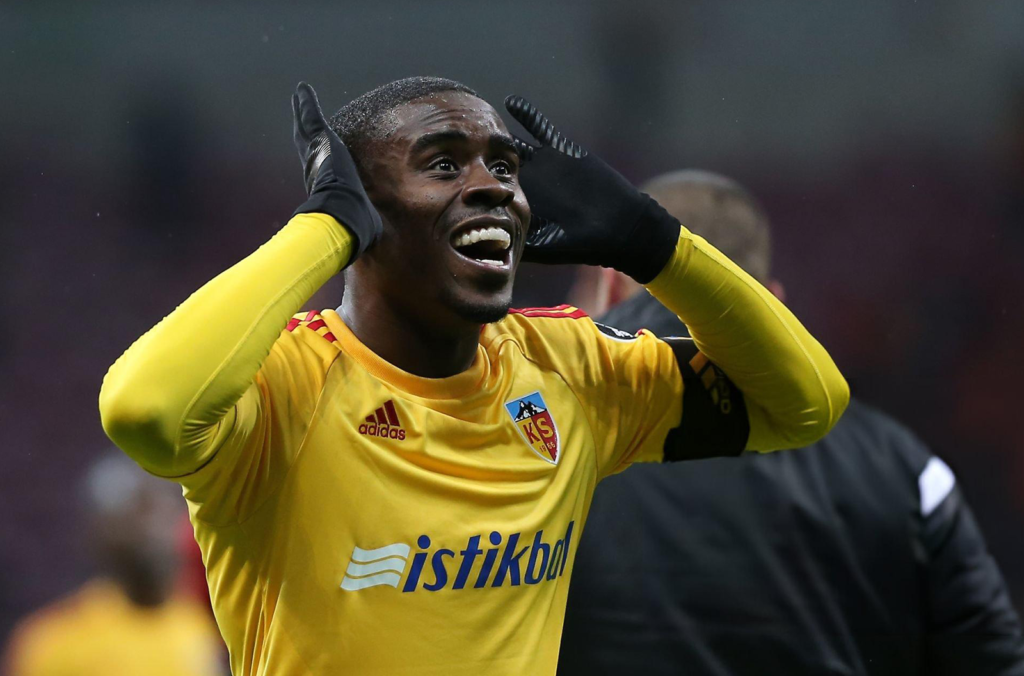
20. International Experiences: Growing Through Challenges in Turkey
Moving to Turkey was one of the toughest decisions of my life, yet it turned out to be a huge blessing, teaching me to adapt and grow in ways I could never have anticipated. My move to Karabükspor was not only a step forward in my career but also a profound opportunity for personal development. I saw it as a chance to push myself, break into the starting eleven, and establish myself as a cornerstone of the team. As a new Muslim, living in a predominantly Muslim country also held deep personal significance. I hoped the environment would support me in strengthening my spiritual practice, which has always been a major part of my well-being—and it did. My time in Turkey allowed me to immerse myself in both the theoretical and practical aspects of my faith, bringing me a sense of peace and grounding that carried me through my journey there.
This move took me far from home—my first time living so far from my family. Leaving my wife and daughter back in France was by far the hardest part of the journey. I managed to see them during French holidays, and each visit gave me an emotional boost. But for the most part, I was on my own, adjusting to a completely new environment. Karabük felt like a village surrounded by mountains, with only one tunnel in and out. I quickly learned how isolated it could feel.
I had two major concerns about living in Turkey: food and people’s attitudes. First, I worried about Turkish cuisine. As a big eater, I knew food would be a major part of my experience, and I feared it might not match my tastes. But to my surprise, Turkish cuisine turned out to be one of my best memories. The variety and flavors of Turkish food—everything from meats to desserts—quickly made it one of my all-time favorites.
My second concern was about fitting in with my teammates. I had heard that Turkish people could be very strong-willed, especially in sports. I encountered this head-on in my first training session, where an older teammate who was actually the vice captain came at me with a hard tackle, clearly trying to intimidate me. I managed to jump early, avoiding injury, and landed on his leg on purpose to make a point. He stood up, and we ended up in a physical confrontation. While it wasn’t a good look, standing my ground earned me respect from my teammates right from the start.
Just a month later, I was tested again. At halftime during a game, a well-known Turkish teammate criticized me for not winning enough aerial challenges. The tension started to escalade on our way back to the locker room and almost became physical as soon as we got in. These moments were tests of my character, and though I hadn’t expected to face them so soon, they proved to be valuable lessons. I realized the importance of standing firm in new environments, especially when respect had to be earned.
One of the most valuable qualities I developed during my time in Turkey was a deep curiosity to learn. Embracing Turkish culture became an important part of my journey, and I sought out every opportunity to immerse myself in it. Whether attending gatherings, accepting dinner invitations, or simply meeting new people, each experience helped me feel connected to my new environment. Learning the Turkish language was another key element of my integration, both for personal growth and to better connect with my teammates. Moving from not speaking the language at all to becoming fluent transformed my experience—it allowed me to communicate naturally, helped me fit in more seamlessly, and earned me even more respect within my teams.
Reflecting on my time in Turkey, I realize that it was this curiosity to learn—about new cultures, new people, and about myself—that led me to understand what I was truly made of. Being far from home, managing loneliness, and navigating unfamiliar situations helped me mature tremendously. I look back on my time in Turkey with immense gratitude. If I had to do it all over again, I wouldn’t hesitate—it was one of the best and most transformative experiences of my career and helped shape me into the man I am today.
SOCCER CAREER HIGHLIGHTS
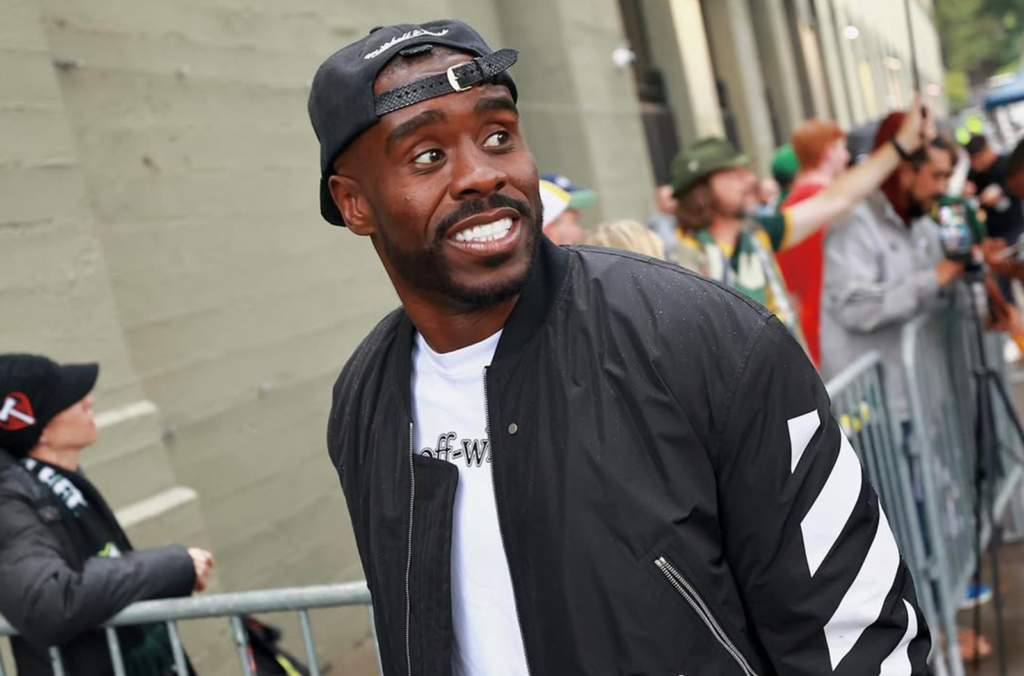
21. Transitioning to Life in the U.S.
By the end of my fifth season in Turkey, I was emotionally and physically drained. The years of off-field battles—fighting to get paid, managing relationships between the team and board, and handling team issues as captain—had taken their toll. I found myself craving a simpler life, one focused solely on playing soccer without the added responsibilities of off-field struggles. Personally, I was also struggling. Living apart from my wife and daughter for extended periods had become too difficult; although I saw them every six weeks or so during the season, I needed their presence with me. That’s why I decided to decline a lucrative contract renewal offer in Turkey. By then, I knew no amount of money could compensate for the sense of stability and emotional well-being I was seeking.
I actually began discussions with the Portland Timbers while the Turkish season was still underway, around March, fully aware that I didn’t want to return to Turkey. My aim was to reach a balance, negotiating terms that could ease the financial sacrifice I was making for the sake of my personal well-being. When I officially joined the Timbers, it marked not only a move to a new league but also a significant shift in my lifestyle. Now, I would be living with my family full-time, which brought its own set of adjustments. After years of living independently, doing whatever I wanted on my own schedule, I had to adapt to having my family around me daily. Simple freedoms—like staying up late or sleeping in on weekends—now required more consideration. I hadn’t realized how much of a change this would be, but it was part of the new chapter I’d chosen.
Professionally, my experience in the U.S. was different from the beginning. Unlike my initial days in Turkey, where I had to earn my place and overcome skepticism, my arrival in Portland felt welcoming. I sensed from the first day that I was genuinely wanted, and that made the transition smoother. But, like my move to Turkey, I had some of the same initial concerns—food and people. The food scene was quite different from what I’d experienced in Turkey, where I’d grown to love the local cuisine. Although Portland is known as a good food city in the U.S., it didn’t compare to what I’d enjoyed in Turkey, and it took some adjusting, especially since my wife, who was pregnant at the time, wasn’t enjoying it either. That was an unexpected challenge.
In terms of integrating with people, however, I found it easier than I had in Turkey. While the mentality was different, I’ve always had a natural ability to adapt to my surroundings. Growing up, I admired and embraced the American mindset, so blending into this new culture felt natural—I had been living with a similar outlook even while in France. Speaking English fluently made a huge difference, allowing me to handle everything independently from day one, without needing help with basic tasks, which had been a big challenge in Turkey. With that foundation, I could focus on deepening my understanding of the American system and making informed decisions in my professional life. Over time, I became so self-sufficient that I negotiated my last two contracts independently, without an agent or lawyer. I wanted to feel in control of my choices, even if that meant learning through mistakes.
Adjusting to life in the U.S. also came with its own challenges. Living in a society highly focused on consumerism and material possessions made it difficult to maintain the simplicity I had found in Turkey. Here, it seemed like the goal for many was to buy and own as much as possible, which could be overwhelming. In Turkey, I didn’t pay much attention to the way I dressed or the car I drove; I just focused on living simply. However, in the U.S., I found myself shifting my mindset, tempted by the lifestyle around me. I also enjoy the good things life has to offer, and balancing that without losing myself became a challenge. In many ways, it felt like the very things I had tried to avoid back in France were waiting for me here in a different form, only now I didn’t have my close friends around, and I had a family to care for.
Reflecting on this transition, I realize how much it demanded of me, both professionally and personally. It’s been a journey of adapting, balancing, and finding stability in new surroundings. And while it was challenging, it ultimately strengthened my resilience and broadened my perspective on what it means to lead a fulfilling life.
FITNESS JOURNEY
1. Staying Fit at 37 and Beyond
My final seasons were filled with reflection and gratitude. As I prepared for life beyond the field, I realized how much soccer had given me—discipline, resilience, and a lifelong community. Retirement didn’t unfold the way I had hoped, but it led me to a new purpose: helping others. Writing about my journey sparked a passion for mentoring and guiding the next generation of players.
2. My Routine and Philosophy
My approach to fitness is all about consistency and balance. I focus on strength, flexibility, and mental resilience, building routines that challenge me while honoring the body I’ve worked hard to maintain.
Routine
I start on the bike with resistance, warm up my arms, core, and legs on the mat, then focus on lifting, targeting different muscle groups. I always end with 20-30 minutes on the treadmill or StairMaster for cardio.
Consistency
I maintain a routine of five days a week, Monday through Friday, no matter what.
3. Tips for Staying Active at My Age
For anyone starting their fitness journey, my advice is simple: start small, stay consistent, and enjoy the process. Age is just a number; the key is to find a routine that challenges and motivates you. Just like anything in life, doing a little each day is far more sustainable than doing too much at once and burning out. Consistency is key, and 30 days of commitment can turn new tasks into lasting habits.

